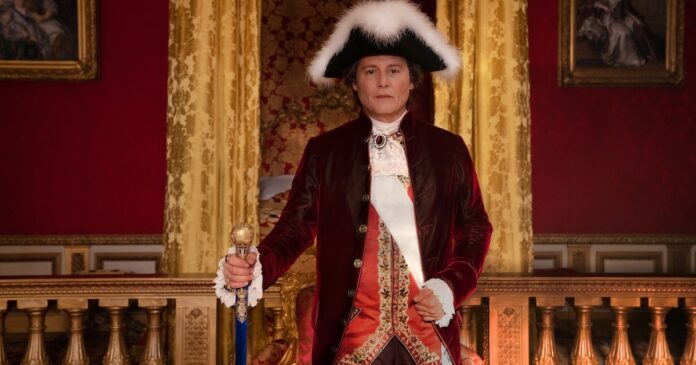Tudor Leonte
Curated From www.comingsoon.net Check Them Out For More Content.
Selected to open the 76th edition of the Cannes Film Festival, Maïwenn’s film Jeanne du Barry takes a bold and daring approach in recounting the life and tumultuous journey of Jeanne Vaubernier, the court favorite of French King Louis XV (Johnny Depp). Driven by her ambition to escape poverty, Jeanne employs her charms to captivate influential men, ultimately catching the attention of the King himself. The film beautifully portrays their love-at-first-sight encounter, rekindling Louis XV’s zest for life and leading to the controversial decision to make Jeanne his official favorite. The ensuing scandal highlights the prejudices and societal expectations of the time, with Jeanne’s presence at Court causing a stir among the aristocracy.
Depp is the most notable presence in Jeanne du Barry, returning to the big screen after a three-year hiatus following a highly publicized trial involving his ex-wife Amber Heard. Depp goes out of his comfort zone to act and speak in French, and while it’s true that his lines are scarce, he does sound authentic even to the Francophone ears. The 57-year-old actor shows no signs of ring rust. He puts on a classical Depp performance, proving once more than acting goes beyond simply uttering words but also involves facial expressions, eye movement, and body presence. Still, Pirates of the Caribbean fans might see some resemblance between Jeanne du Barry’s Louis XV and Jack Sparrow acting as a judge in Stranger Tides.
In Jeanne du Barry, Maïwenn directs, writes, and acts as the titular heroine, a sign that she cares greatly about this project. The film portrays Jeanne as a cunning woman navigating a world dominated by powerful men, fearlessly breaking societal norms and forging her path. This aspect of the film reflects Maïwenn’s audacity and willingness to challenge conventions at Cannes and elsewhere. One cannot overlook the controversy surrounding the director herself. The artist’s troubled relationship with the press, particularly the incident involving an alleged assault on a journalist, casts a shadow on the film’s reception. However, it is important to separate the artist from the art and evaluate the movie on its own merits.
Unfortunately, the film fails to provide a comprehensive understanding of why Jeanne becomes so indispensable to King Louis XV. While her charms and allure are evident, the movie fails to delve deeper into her exceptional qualities, reducing her character to a beautiful woman who reads books and knows unusual words. This oversight leaves a gap in portraying Jeanne’s significance and undermines the film’s exploration of her rise to power. Another of the film’s shortcomings lies in its narrative structure. The stylistic choice to rely on time jumps creates a disjointed experience, with the movie resembling a collage of vignettes that do not always seamlessly connect. This approach hampers the audience’s immersion in the story, preventing an all-around presentation of Jeanne’s character and motivations.
In conclusion, Jeanne du Barry is a film that evokes mixed reactions. Sure, it showcases aspects of the director’s boldness, and the casting is spot-on mainly. Besides Depp, it’s worth mentioning Benjamin Lavernhe’s La Borde and India Hair’s Adélaïde, among other performances. Still, the movie fails to deliver a compelling exploration of its protagonist’s significance. Most of all, it leaves much to the imagination, which is entirely unexpected, considering the protagonist is a courtesan.
SCORE: 6/10
As ComingSoon’s review policy explains, a score of 6 equates to “Decent.” It fails to reach its full potential and is a run-of-the-mill experience.

